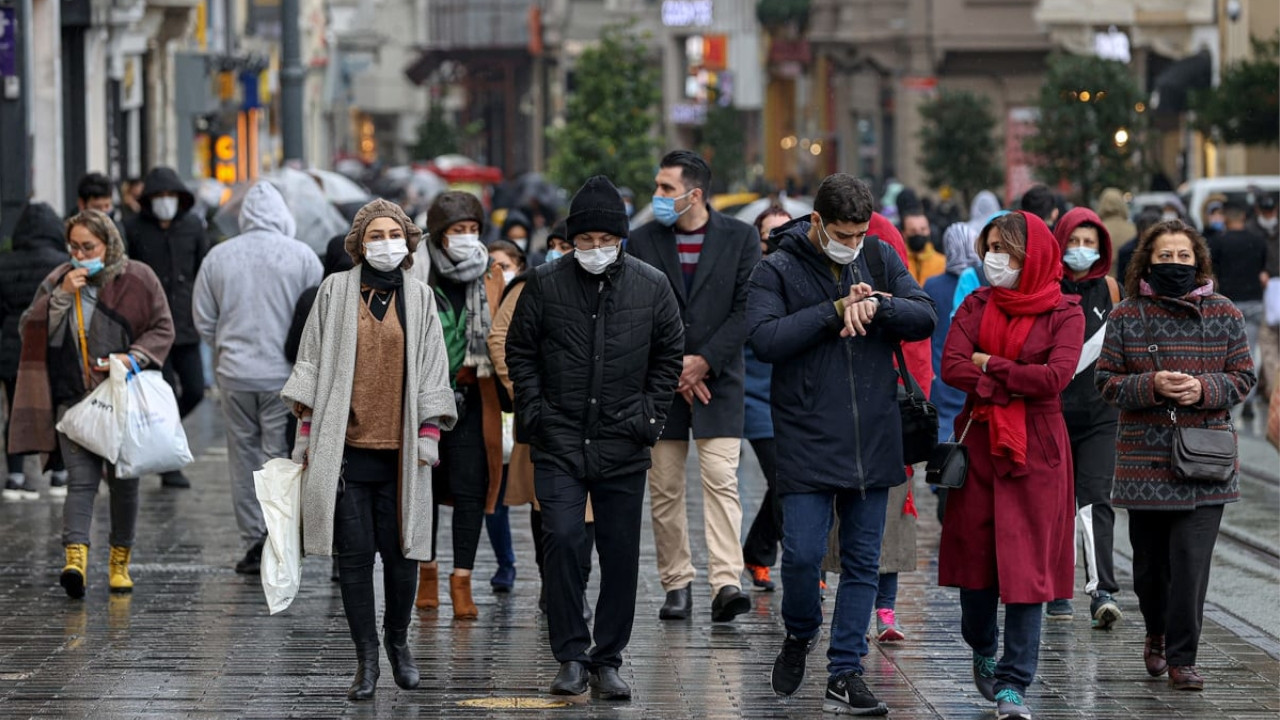Asylum applications from Turkey to EU increased by 500 pct since 2015
Turks who have lost faith in their country's future seek and dream of new lives in the EU and other countries abroad, despite President Erdoğan's claims that the world "envies" Turkey.
K. Murat Yıldız / Duvar English
Turkish citizens' asylum requests to Europe have increased by 506 percent, according to the European Union Statistics Office's (Eurostat) migration and asylum report data for 2020.
Turkish citizens ranked fifth in applications for immigration, asylum, and temporary protection to European Union countries, after Syrians, Venezuelans, Afghans, and Iraqis, according to the same data. Turkey was followed by Somalia, Eritrea, Iran, Nigeria, and Pakistan in the same study.
President Recep Tayyip Erdoğan's claims that no Turk goes abroad for work, food, health, education, or other reasons, that immigration is reversed, and that foreigners are envious of Turkey have been debunked by the dramatic increase in Turkish citizens seeking haven in EU.
According to Eurostat data, the number of people granted protection status in 2020 decreased by 5 percent when compared to 2019, falling from 295,600 in 2019 to approximately 281,000 in 2020. Some 128,000 people were granted refugee status, with about 81,000 receiving humanitarian protection and approximately 72,000 receiving secondary protection.
Germany received 98,000 people and applications followed by Spain with 51,000, Greece with 36,000, France with 29,000, and Italy with 21,000.
Syrians took the first place among those benefiting from the protection opportunity in EU countries. Last year, 74,700 Syrians made up 27 percent of the total protection beneficiaries, followed by Venezuela with 17 percent and Afghanistan with 15 percent.
Meanwhile, the Eurostat 2020 report on migration notes that in asylum and temporary protection applications Turkey ranked among the top five countries. While 2,995 Turks applied for asylum in the EU countries in 2015, this number increased by 506 percent in five years to 18,145 in 2020.
Germany tops the list
The acceptance rate of Turkish asylum applications to EU countries increased from 21 percent in 2016, when the coup attempt occurred on July 15, to 51 percent in 2019 as Gülenists flocked to EU and other Western countries, and then fell to 43 percent in 2020, still more than double that of 2016.
Germany was the country where most Turkish citizens applied for asylum and protection. While 51 percent of Turks who travel abroad apply for asylum and protection in Germany, only 54.6 percent of these applications were accepted.
According to the Turkish Statistical Institute's (TÜİK) 2019 Migration Statistics, there were 330,289 migrations from Turkey to Europe, the U.S., and other countries, with the largest immigrant age group being between 25-29. Brain drain and youth migration have been a major problem in Turkey in recent years after the constant decline in standard of living, rule of law, democracy, as well as socio-economic and political problems. Moreover, Turkish immigrants and asylum applicants stand out with regard to professional experience and education compared to their counterparts from other countries.
Youth doesn’t see any future in Turkey
According to Yeditepe University's Youth Survey, of those between the ages of 18-29, 76 percent of the Turkish youth stated that they want to live abroad for a better future.
Yeditepe’s study found that while 64 percent of respondents said they could obtain permanent citizenship in another country, European countries came out on top with 43 percent of the vote in terms of country preference. With 39.8 percent, the U.S. and Canada were second, followed by Scandinavian countries with 14.8 percent.
“Universally accepted rights and principles are being demolished. Turkey's recent withdrawal from the Istanbul Convention is a good example of this. This further eroded Turks' belief, particularly among the youth and women, that they live in a country where their rights and existence are protected,” lawyer Ali Rıza Dizdar told Duvar English.
“Events at Boğaziçi University, daily practices of security forces and courts, the Court of Cassations overturning the acquittal of 35 people from Beşiktaş's ‘Çarşı’ fan group on trial over Gezi, social media cases and fines for ‘insulting the president’ are all examples of this. As a result, people have lost faith in the justice system and country,” he added.
“There is no faith in justice. People are dissatisfied and fearful of the future. Naturally, people, particularly young people, most of whom are well educated and professionals, want to leave the country,” Dizdar concluded.

 804 Turks who went abroad with service passports never returned: Interior MinisterPolitics
804 Turks who went abroad with service passports never returned: Interior MinisterPolitics Turkey's poverty rate rose above 12 percent last year: World BankEconomy
Turkey's poverty rate rose above 12 percent last year: World BankEconomy Over 176,000 workers fired in Turkey in 2020 despite layoff banHuman Rights
Over 176,000 workers fired in Turkey in 2020 despite layoff banHuman Rights Employers abuse Turkish labor law to skirt pandemic lay-off banEconomy
Employers abuse Turkish labor law to skirt pandemic lay-off banEconomy